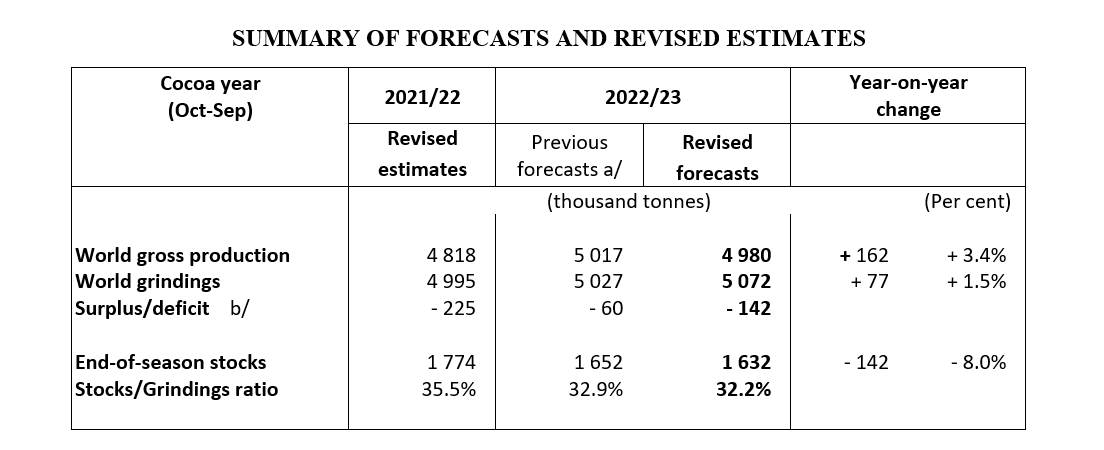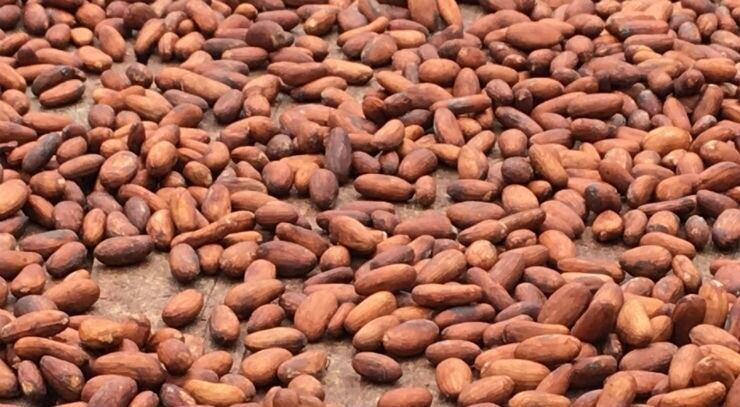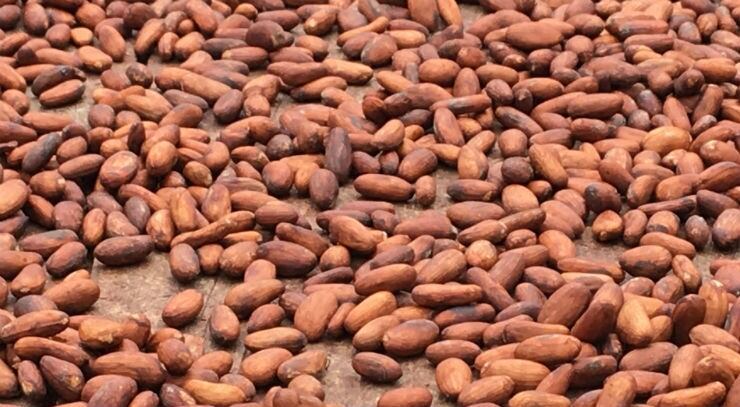In a statement, it said that although positive growth in cocoa production is underway for the season under review, yields are likely to be impacted by the weather such as the looming El Niño as well as other factors including diseases, fertilizer inputs, husbandry practices among others.
The inter-governmental organisation said it now sees global production rising just 3.4% year-on-year to 4.980 million tonnes this season, after previously forecasting a rise of 4.1% to 5.02 million.
"Cocoa grindings are envisaged to be positive despite the uncertainty about the global macroeconomy," the ICCO said.
The ICCO’s recent quarterly report (May 2023), revealed Global grindings, a measure of demand, rose 1.5% year-on-year to 5.072 million tonnes, versus a previous forecast for a fall of 0.6% to 5.027 million.

Reuters said the projected deficit for the 2022-23 season was much wider than a median forecast of 70,000 tonnes in a poll issued in February.
The ICCO also sees production in Cote d’Ivoire this season rising 4% to 2.20 million tonnes, slightly below a previous forecast of 2.23 million amid heightened fears over a potential swollen shoot virus outbreak.
Ghana’s (the second top cocoa producer after Cote d’Ivoire) production is still estimated to be up 10% at 750,000 tonnes this season.
Reflecting prior to the 2021-22 season, the ICCO trimmed its deficit forecast to 225,000 tonnes from 287,000 tonnes, after a sharp downward revision to grindings
It also noted cocoa exchange stocks are building up even as top producers reduce bean exports and increase semi-finished product shipments as they continue to build up local capacity to process beans.
Additional source: Reuters



